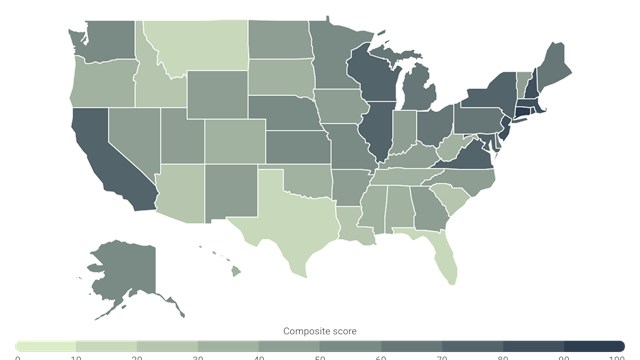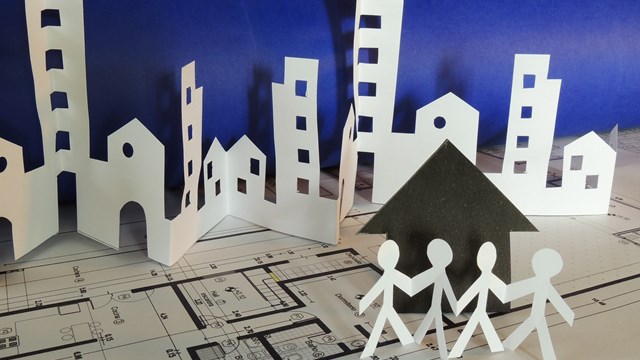
As 2023 draws to a close, the New York metro’s co-op and condominium communities are feeling the consequences of a long, slow, persistent market decline brought on by the pandemic, rising interest rates, and inflation. That decline has meant a drop in apartment resales, which in turn has led to less revenue from flip taxes. Amid the more immediate concerns over rising prices and soaring interest rates, no one was thinking much about flip tax revenue. The problem may be particularly acute in middle-market co-ops, as flip taxes are more common in co-ops than in condos, and are an important revenue source for communities whose residents might struggle to pay large assessments or high maintenance fees.
What is a Flip Tax?
A flip tax - also known as a transfer fee - is a payment to a building or association imposed on co-op shareholders and condominium unit owners upon sale of their unit. The amount of the tax is spelled out in the community’s governing documents, and is based on the appreciation of that unit (or those shares, in the case of co-ops) from the time of purchase to the time of sale. In simple terms, let’s say you bought your apartment for $500,000 and sell it five years later for $1,000,000. The corporation or association may require a payment on that $500,000 profit. If that payment is two percent of the profit, then upon the sale of your unit, you would owe the corporation or association $10,000. While this example is of course something of an oversimplification, and the exact terms of flip taxes differ from building to building, that’s the basic premise.
Why the Concern?
Historically, revenue from flip taxes has not figured into the budgeting calculations of shared interest communities, because it’s impossible to predict whether or how many units may be resold in a given year. Budgets generally divide into two categories: operating budgets and capital budgets. The accepted rule is that the operating budget - the monies used to keep the property running smoothly from day to day - is funded through the collection of monthly maintenance or common charges. The capital budget - monies needed to make major capital repairs and improvements - is funded through existing reserves and/or assessments. Flip tax revenue could certainly be a bonus, but because of its unpredictability, counting on that money would be a gamble.
As values and sales prices have risen consistently over the decades, more and more co-op corporations and condo associations have adopted flip taxes. The income from these transactions have created a financial cushion for many communities. It’s an additional infusion of cash that can help even out and soften the exigencies of the market and the economy at large. But again, because it’s not guaranteed, and is tied to market forces and whims, flip tax revenue should never be taken for granted.
The Consequence
That being said, during the heady post-Great Recession years of bidding wars and rock-bottom interest rates, “Flip taxes became a reliable source of revenue for many co-ops and some condos,” says Erin Dyles, an associate with Coopersmith & Coopersmith, a law firm based in Manhattan. “In a better market than we are seeing now, it provides an opportunity for the community to collect some additional revenue and to build up reserves, or even fund operating expenses.” However, “Those same communities are not collecting those revenues when there aren’t any sales,” she continues. “They may have to find that revenue elsewhere when needed. Larger buildings might have enough reserves to cover slow periods. But otherwise, those revenues, when needed, come from owners. That may mean higher maintenance fees, or an assessment.”
“The typical condo or co-op was seeing a cushion from flip taxes,” says Hal Coopersmith, a principal at the firm. With the change in the situation, “It’s a good idea for a co-op to budget operations solely off of maintenance or common charge collections, and for capital expenses to come as an assessment, because otherwise, if there’s a market downturn you can get into a problem.”
An example of this problem is a 55-unit co-op in Manhattan where there have been zero sales in the past two years. Last year the co-op board instituted a six-month assessment of $300/unit/month to build up reserves depleted by increasing costs the prior year, and this year increased maintenance for the coming year by seven percent - the largest annual increase in its nearly 40-year history.
A Ripple Effect
The effect of the drop in flip tax revenue can reach deep into a co-op’s financial situation, even more so than in a condo community. Consider a co-op that has to refinance an underlying permanent mortgage at current rates, for example. If they are holding a mortgage currently at a far lower interest rate, the refinance will result in much higher debt service payments, which will be passed through to shareholders in their monthly maintenance payments. “It’s not a loan-to-value issue,” says Coopersmith. “It’s that with higher interest rates, maintenance costs would increase. Flip tax revenue might have been used to pay down the principal of the mortgage to lower the monthly payments. Those funds are not available now.”
“To protect the general financial health of a co-op or condo community,” says Dyles, “don’t rely on flip taxes for operations. Keep that money in reserves for unexpected contingencies, like, as Hal described, the paydown of a mortgage or other emergency situation. And always speak to your accountant before making these kinds of decisions.”









Leave a Comment